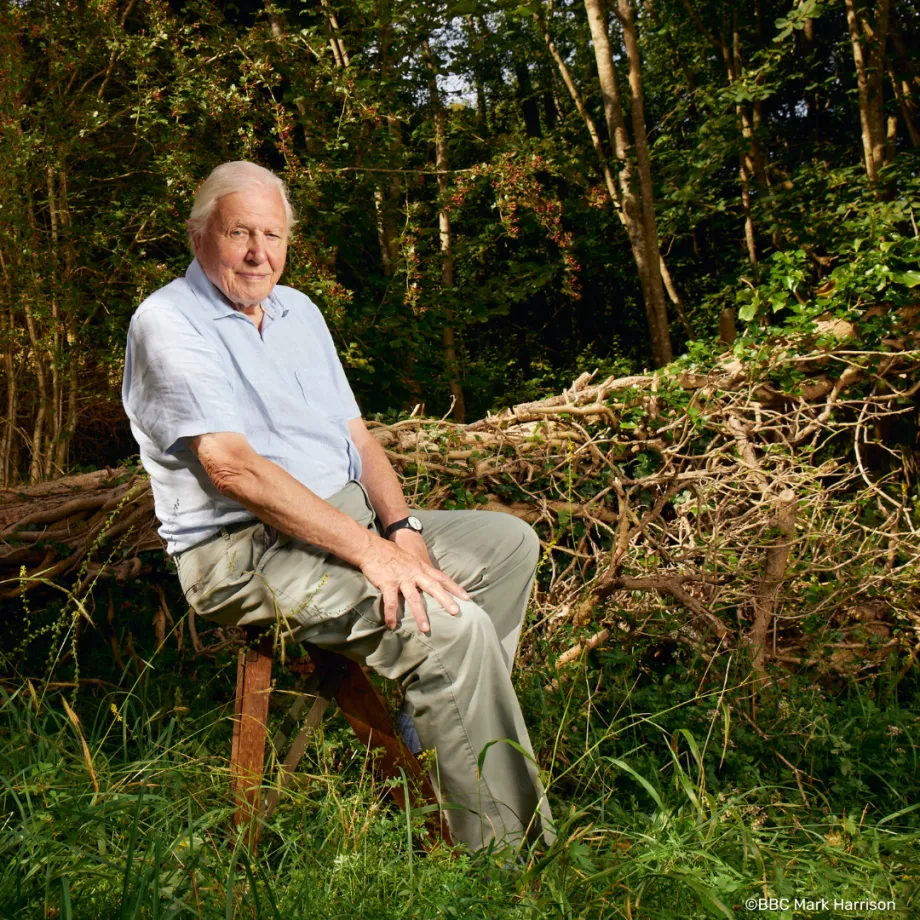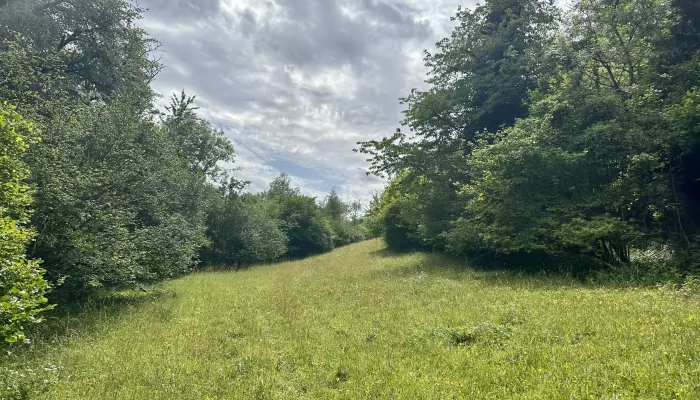
David Attenborough at Downe Bank Nature Reserve. BBC's Mark Harrison
Owned by Kent Wildlife Trust, Downe Bank Nature Reserve is historically significant due to the studies conducted there by Charles Darwin. It is home to an abundance of species including pyramid and bee orchids, the green hairstreak butterfly, the brown argus butterfly, and wild cherry.
The filming for Sir David’s introduction of Planet Earth III took place at Downe Bank on a warm summer day in August where the renowned conservationist, now 97 years old, walked along Orchis Bank, which was brimming with orchids, wildflowers and butterflies as he welcomed watchers to the new series.
Despite the global, exotic locations covered in BBC Planet Earth III, it was Downe Bank that stole the hearts of the series producers; when asked about any unique wildlife encounters he had experienced in the making of the programme, Executive Producer Mike Gunton said:
“My answer might surprise you because it doesn’t involve a remote location or an exotic species. It was actually a very simple moment. Our final day of filming for the series was with David in a quintessential English flower meadow on a sunny late summer's day. It was the very meadow that Charles Darwin used to observe and explore while he ruminated on his theories about the natural world and evolution.
“The meadow was alive with bees and insects; grasshoppers were singing out their melodies all around us and there was an abundance of butterflies floating on the warm air. Both David and I said it was truly magical and it gave me hope that if we can protect and restore and allow nature to work its miracles, then future generations will be able experience that magic for many years to come.”
This sentiment was also echoed by Series Producer, Matt Brandon, who said: “That day we spent filming at Downe Bank Nature Reserve in Kent, with David, was just one of the most glorious days we had on set. It was peaceful, the sun was shining, the air was filled with butterflies and the grass was humming with life.
As natural history filmmakers we are lucky enough to travel all over the world, but I’m equally amazed by the wildlife here at home. We must remember to appreciate the wildlife we have on our doorstep - it’s so special and needs our protection just as much as wildlife overseas.”
After filming, Kent Wildlife Trust’s Mollie Amor presented Sir David with their members ‘Wilder Kent’ magazine and a letter thanking him for coming to the reserve and was thrilled one week later to get a handwritten letter in reply. The note read: “I am delighted to know that your Trust is doing so much to help wildlife conservation in your county.”
Mollie said: “As someone passionate about conservation, it was an incredible experience to witness part of this incredible award-winning, flagship series being made and watching Sir David Attenborough in action is something I will never forget. We are both delighted and honoured that the series producers chose to film with us and can’t wait to watch the full programme.”
Help Kent Wildlife Trust protect and manage sites like Downe Bank
Become a member, donate, or support us by volunteering

